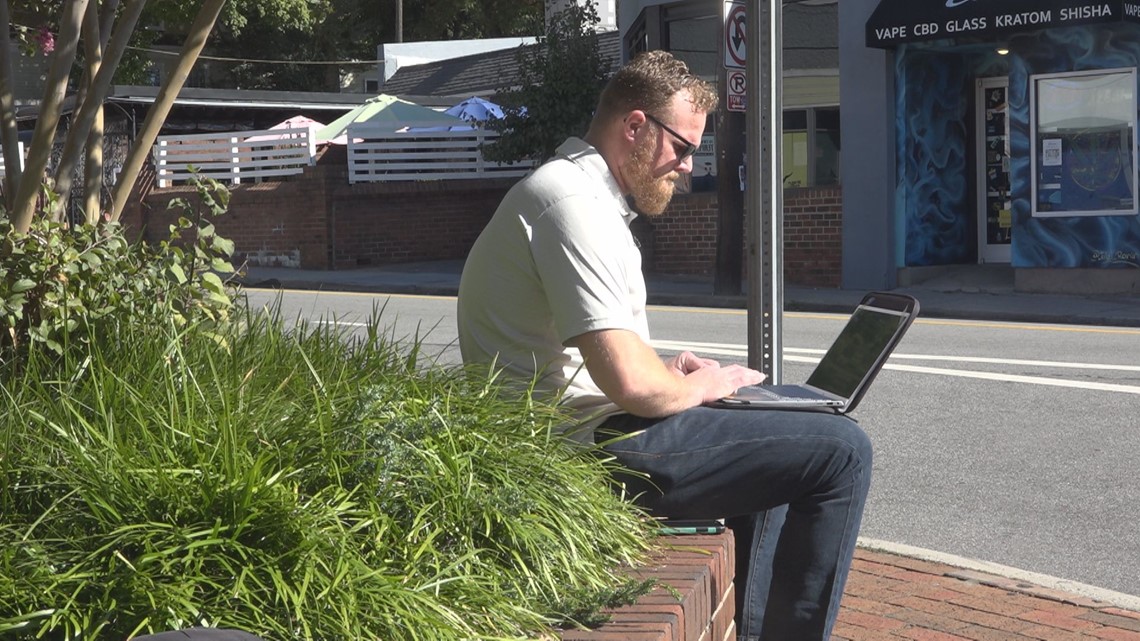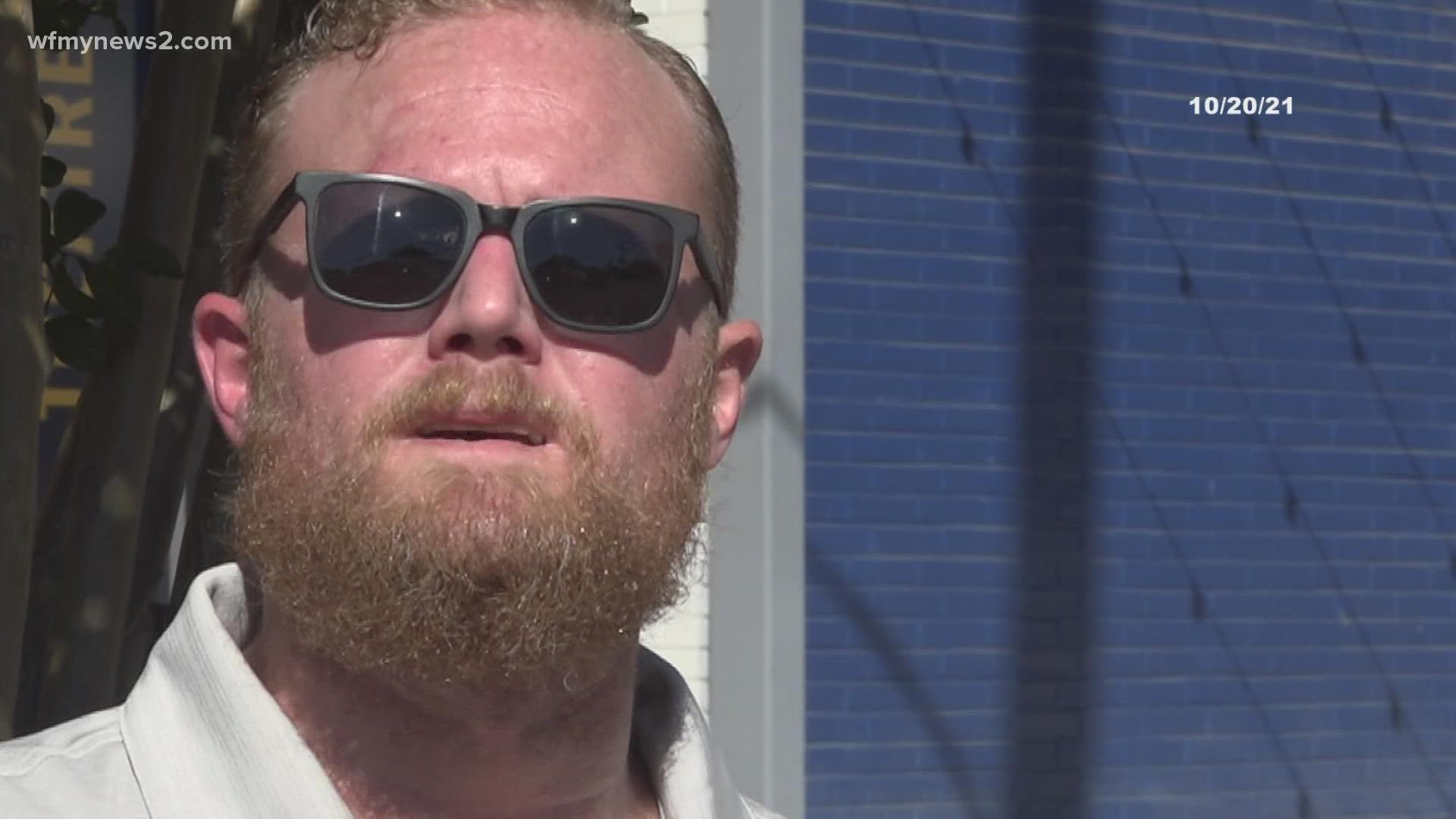GREENSBORO, N.C. — Before the pandemic, Gov. Roy Cooper declared there was a deadly epidemic of opioid use across North Carolina. While the problem fell out of the spotlight, drug use kept getting worse. But there is help on the way.
At UNCG, Scott Lomagistro is the type of success story that inspires. Today, he’s close to graduating with a degree in psychology, but three years ago...
“Unfortunately, for me, it took losing just about everything before I was willing to really do the work," he said.
He was homeless and eating out of trash cans. Hooked on heroin. Scott’s family helped him get into treatment right before coronavirus hit. Through the pandemic, he stayed clean by using Zoom meetings and talking on the phone with close friends. Options, not all addicts had access to.
“As of now, I’ve lost six friends in this past year," he said. "The last was two days ago. A good friend of the family who had multiple years in recovery. And their passing was a result of isolation. And that inability to contact individuals in their support network when necessary.”


During the pandemic, overdoses rose across the Triad. In Guilford County, overdoses went from 910 in 2019 to 1,074 as of October. In Forsyth – 847 in 2019 compared to 1,102 so far in 2021.
The Forsyth County Health Department's Amanda Clark says the isolation part of the pandemic hurt a lot of addicts. But also:
“A lot of people lost their jobs. A lot of people are grieving. They may have lost a loved one to COVID," Clark said. "All of those things kinda created the perfect storm."
Even people who don’t use drugs are impacted. Experts say the increase in opioid use has a lot to do with those help wanted signs all over town.
“Either they can’t get hired to get a job because of it, or they’re not working because of mental health issues related to it. It’s something, in a lot of little ways, can affect us in ways we don’t even think about," Clark said.
The good news: North Carolina is supposed to get about $750 million in settlement money from lawsuits over the way drug companies marketed opioids. Elyse Powell is the State Opioid Coordinator for the Department of Health and Human Services. She says that money will go to support a plan of prevention and treatment programs developed before the pandemic - one that started to help things get better before coronavirus.
“I am hopeful. Right before the pandemic, we were starting to see a turn of the tide. We just have to do what we know works," Powell said.
She also knows coronavirus forever changed the opioid epidemic.
“Some of the changes that have happened have been positive. For example, the Federal government temporarily suspended a ban on providing medically assisted treatment via telehealth," she said. "That’s a huge boom for people who don’t have access to treatment in their community. So what we want to do is really take the lessons learned from the pandemic, and see how we can do better.”
Scott hopes all of the talk about mental health during the pandemic will start to take away some of the stigma of substance abuse.
“If somebody is ill with cancer or diabetes, they are treated after a diagnosis. There is no true stigma attached to it. But when somebody is dealing with substance use disorder, there is this idea that someone is dealing with moral failing, weak will," he said.
He’s going to keep sharing his journey to help change that opinion, and after graduation, Scott plans to use his degree to help more addicts write their own recovery stories.

